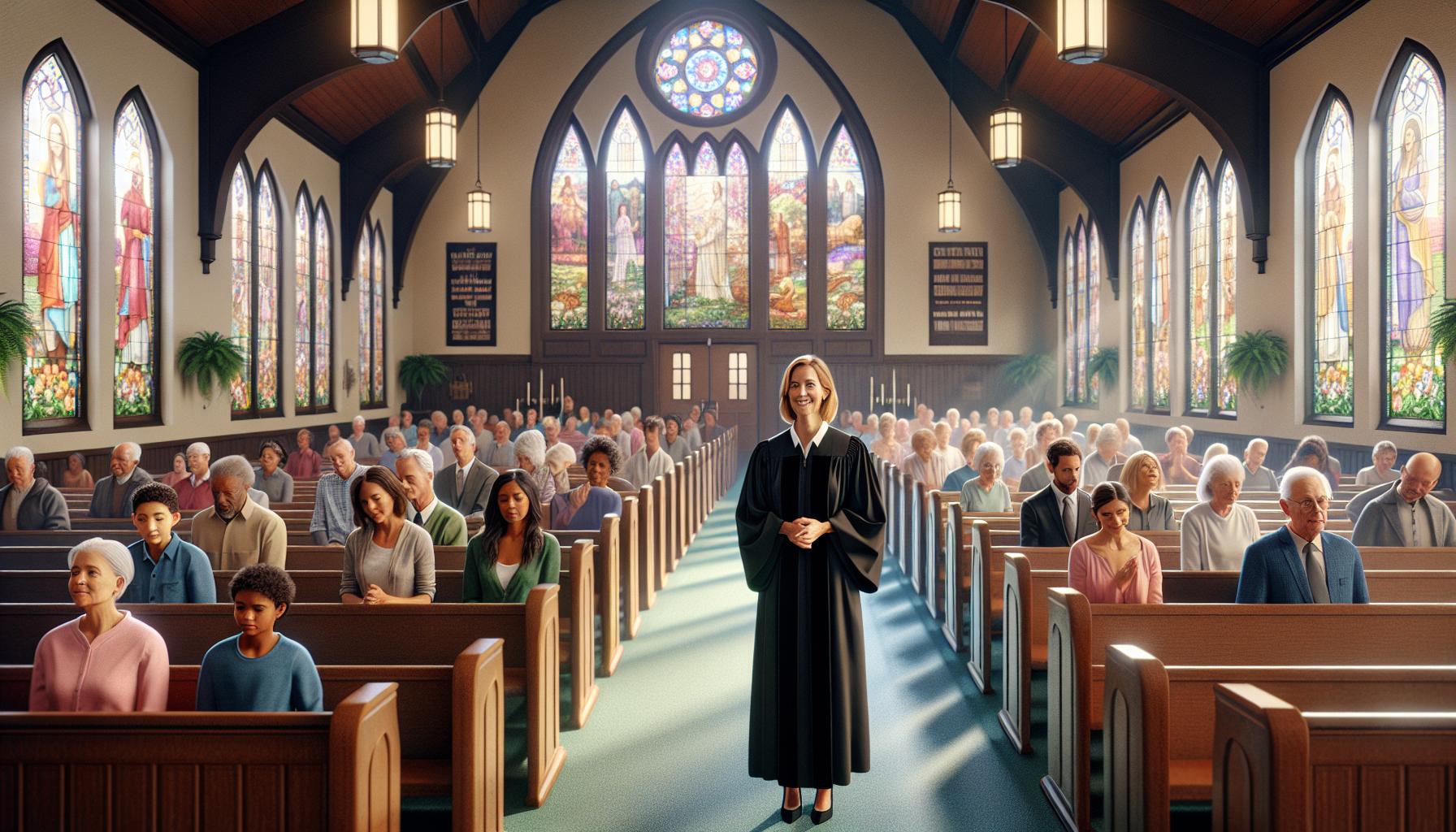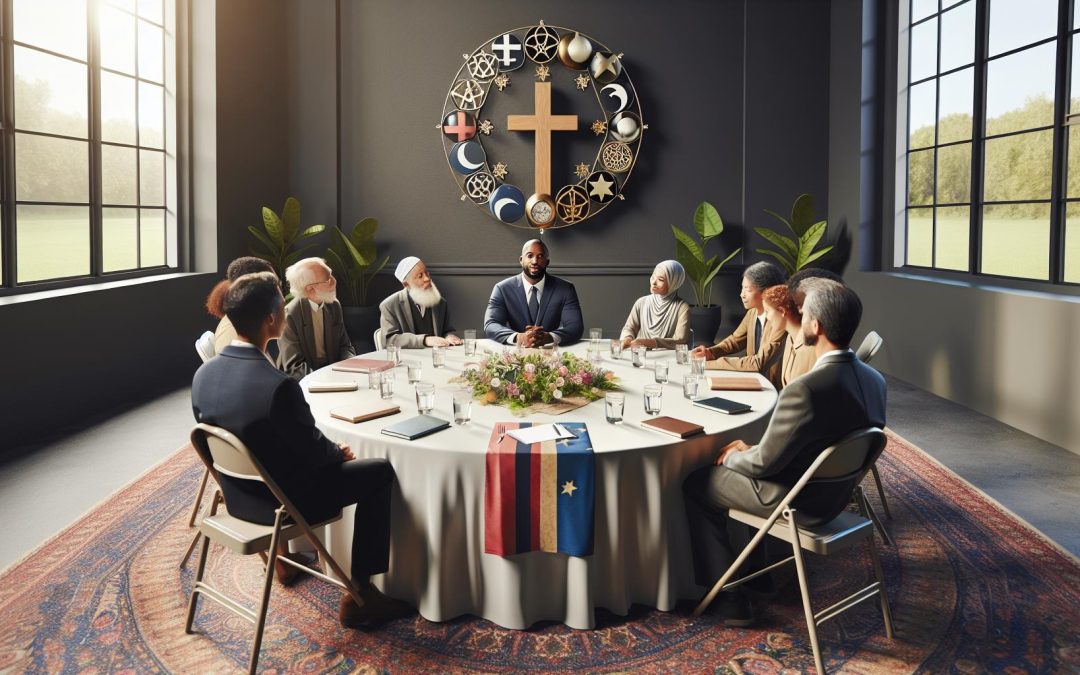Kirkland, a charming city nestled on the shores of Lake Washington, is more than just a picturesque place—it’s a community rich in faith and fellowship. As I stroll through its quaint streets, I’m struck by the welcoming presence of its many Christian churches. Each one offers a unique expression of worship and community, reflecting the diverse tapestry of beliefs and traditions that make Kirkland so special.
These churches aren’t just buildings; they’re sanctuaries where people gather to experience the grace of God in profound ways. From vibrant Sunday services to quiet moments of reflection, there’s a sense of belonging that draws people in. Whether you’re a lifelong resident or a curious visitor, exploring these spiritual havens can be a deeply enriching experience. Join me as we delve into the heart of Kirkland’s Christian community and discover the grace that binds it all together.
Overview of The Grace of God: Christian Churches in Kirkland
Kirkland boasts a vibrant tapestry of Christian churches, each reflecting the grace of God through worship and community service. These churches offer a variety of denominations and styles, creating a diverse spiritual landscape. From traditional to contemporary services, there’s something for everyone exploring or deepening their faith.
Many churches in Kirkland prioritize inclusivity and outreach as they aim to create welcoming environments for all. I’ve noticed that congregations engage in community service projects such as food drives, clothing donations, and assisting the less fortunate. This commitment to community enrichment embodies the grace that many Christian churches strive to showcase.
Worship experiences vary across churches, providing options for different preferences. Some churches focus on sacred liturgy and hymnal music, creating a more solemn atmosphere. Others embrace contemporary worship with lively bands and multimedia presentations. Each church invites individuals to encounter spiritual solace in unique and meaningful ways.
Christian education is a key component in many churches, with programs for all ages. Sunday schools, Bible study groups, and youth ministries offer continued learning and fellowship opportunities. In Kirkland, families find ample resources to grow spiritually together and explore their beliefs in engaging settings.
Pastoral leaders help foster personal connections within the community by hosting social gatherings and small group sessions. I’ve seen how these intentional interactions build strong, supportive networks among churchgoers, nurturing a deeper sense of belonging.
Lastly, interfaith collaboration plays an essential role in Kirkland’s church community. Churches often partner with other faith organizations for events that promote unity, understanding, and shared purpose. This spirit of cooperation emphasizes the broader mission of grace in action, extending beyond individual congregations.
Throughout Kirkland, Christian churches welcome both residents and visitors, offering spaces where God’s grace shines through collective worship, service, and fellowship.
Historical Background of Christian Churches in Kirkland
Kirkland’s Christian heritage roots itself in the late 19th century as settlers established the city’s spiritual landscape. Early settlers, seeking community and religious fulfillment, began gathering in homes for prayer, forming the core of Kirkland’s first congregations. These informal gatherings blossomed into established churches as the population grew.
In 1889, the first official church, Kirkland Congregational Church, was founded. It quickly became a spiritual hub and a community center, marking the beginning of organized Christian worship in the area. As railroads and shipyards flourished, so did the population, and with it, the need for diverse religious expressions.
The 20th century brought further diversification with denominations like Methodists, Baptists, and Lutherans arriving in Kirkland. Each new church contributed uniquely to the community, adapting services and outreach to meet the changing needs of a growing city. In 1950, Holy Family Catholic Church was established, reflecting increasing cultural diversity and expanding religious presence.
The latter part of the 20th century saw an increased emphasis on ecumenism and interfaith dialogue within Kirkland, as churches collaborated on social causes and community projects. Many congregations began focusing on charitable work, including food banks and shelters, driven by a shared mission of service.
Today, Kirkland’s churches remain central to the community, evolving yet holding to the foundational principles set by early settlers. Each congregation continues the legacy of grace and unity, shining through shared worship and community engagement. This history underscores the deep roots and enduring spirit of Christian faith in Kirkland, forming a vibrant tapestry that honors its past while embracing the future.
Architectural Significance
The architectural significance of Christian churches in Kirkland blends historical styles with modern aesthetics, reflecting the community’s cultural heritage and adaptability.
Distinctive Features
Many churches in Kirkland showcase unique architectural features, enhancing their cultural and spiritual impact. Traditional elements like Gothic arches and stained-glass windows often highlight Western-inspired designs. For example, the Kirkland Congregational Church features a classic steeple and intricate woodwork. Modern churches incorporate contemporary designs with open floor plans and natural lighting, such as the Lake Washington United Methodist Church which uses minimalist structures to promote a sense of tranquility. These architectural features, combining old and new styles, create inviting spaces for worship and reflection.
Notable Landmarks
Several church buildings in Kirkland stand out as architectural landmarks. The Holy Family Parish, known for its majestic bell tower and artful mosaics, serves as a focal point for the community. The Rose Hill Church, with its striking spire and expansive gardens, offers a picturesque landscape. Saint John’s Episcopal Church features a distinct neo-Gothic design, accentuated by its impressive stone facades and detailed carvings. These landmarks, situated across the city, not only enhance the skyline but also symbolize the enduring legacy and grace of Kirkland’s Christian faith community.
Spiritual and Community Activities
In Kirkland, Christian churches actively engage the community through various spiritual and community activities. These initiatives offer participants meaningful experiences and foster strong connections.
Worship Services
Churches in Kirkland offer diverse worship services to cater to different preferences. Services include traditional liturgies with hymns and organ music and contemporary sessions featuring modern worship songs and vibrant preaching. Several churches also offer bilingual services, making them accessible to non-English speakers. Weekly services usually occur on Sundays, with additional prayer meetings and Bible study groups available throughout the week. Childcare services are often provided during worship times, ensuring a family-friendly environment. Special services during major religious events, like Easter and Christmas, draw larger congregations, welcoming both members and newcomers with open arms. The warm atmosphere during these gatherings reflects the churches’ commitment to fostering a sense of belonging among attendees.
Community Outreach Programs
Kirkland’s churches prioritize community engagement through various outreach programs designed to assist those in need. Many congregations organize food drives, clothing donations, and meal services for the homeless, providing essential support to vulnerable groups. Some churches run tutoring and after-school programs, helping students achieve academic success and personal growth. A few congregations collaborate with local non-profits to address broader community issues like housing and healthcare access. During the holiday season, churches often hold toy drives and sponsor families, ensuring every child experiences the joy of giving. These outreach efforts exemplify the churches’ dedication to living out their faith through acts of service, building bridges within the community.
Prominent Figures and Leadership
Several prominent figures contribute significantly to the leadership and unity of Christian churches in Kirkland, guiding their congregations with wisdom and compassion. They ensure these spiritual centers thrive.
Pastoral Leaders lead by example, embodying the grace of God through their actions and teachings. For instance, Pastor Emily Thompson of Kirkland Community Church is renowned for her passionate sermons and dedication to community service. Her leadership style integrates spiritual guidance with practical support, bringing balance to both spiritual growth and community responsibility.
Faith Community Organizers play a crucial role in facilitating collaboration among churches. These leaders, like Reverend John Mitchell, organize interfaith events and dialogues that strengthen the bonds within the Christian community and beyond. Through initiatives like shared social service projects, they encourage congregations to extend grace and support across denominational lines.
Educators and Mentors contribute to the church’s educational programs, aiming to foster understanding and engagement with Christian teachings. Education Director Susan Blackwell of Graceful Learning Ministries coordinates programs for children and adults, integrating contemporary pedagogical methods with biblical teachings. Her work creates a nurturing environment for spiritual development.
Visionaries look to the future, ensuring that Kirkland’s churches remain relevant and welcoming. Leaders like Bishop Andrew Lee focus on outreach and inclusivity, envisioning a church community accessible to all, regardless of background or belief. His efforts support a culture of openness, reflecting the universal appeal of the grace of God.
Charitable Organizers oversee various outreach initiatives, translating faith into action by serving those in need. Maggie Rivera, a dedicated volunteer at St. Mark’s Episcopal Church, coordinates food drives and community support programs. Her leadership in mission work exemplifies the church’s commitment to embodying Christian teachings through tangible acts of kindness and grace.
These leaders contribute to a vibrant and cohesive church community in Kirkland, representing the grace of God through their leadership styles and initiatives, ensuring that the rich tapestry of faith flourishes in this city.
Visitor Experience
Exploring the Christian churches in Kirkland offers a truly enriching experience. Visitors encounter not only warm welcomes but also the grace reflected in each unique church setting.
Aesthetic Appeal
Church architecture in Kirkland creates a captivating visual experience. Stepping into structures like Saint John’s Episcopal Church reveals breathtaking neo-Gothic designs with towering arches and luminous stained-glass windows. Each church presents a distinct style, enhancing its cultural and spiritual essence. Holy Family Parish stands out with its majestic bell tower, drawing eyes upward in admiration. These architectural elements help create serene environments, inviting reflection and worship.
Lawns and gardens often surround many churches. Rose Hill Church, for instance, is nestled amid vibrant foliage, providing peaceful outdoor spaces for contemplation. As visitors wander these grounds, they experience tranquility and a palpable sense of grace. These visual elements, from intricate interiors to lush exteriors, showcase the blend of historical tradition and modern aesthetic within Kirkland’s church community.
Accessibility and Amenities
Churches in Kirkland cater to convenience and comfort. Ample pew space and clear signage guide visitors efficiently throughout the church properties. For those with mobility concerns, many churches offer accessible entrances and elevators. Accessible restrooms further facilitate comfort during visits.
Parking is abundant, easing the arrival and departure process. To make everyone feel welcome, places like Kirkland Community Church provide childcare services during worship, ensuring parents can participate fully in services. Additionally, many churches offer translation services during bilingual sessions. These thoughtful amenities reflect the churches’ commitment to inclusivity and hospitality. Visitors feel valued and supported as they explore the spiritual community here.
Conclusion
Exploring the Christian churches in Kirkland has been an inspiring journey. Each church, with its unique blend of history, architecture, and community spirit, offers a glimpse into the grace of God that permeates this vibrant city. Whether you’re drawn to the traditional beauty of stained-glass windows or the modern embrace of inclusivity, Kirkland’s churches provide a welcoming sanctuary for all. The dedication of pastoral leaders and community members in fostering unity and service truly embodies the grace they strive to share. I hope you feel encouraged to visit and experience the warmth and fellowship that Kirkland’s Christian community has to offer.





0 Comments